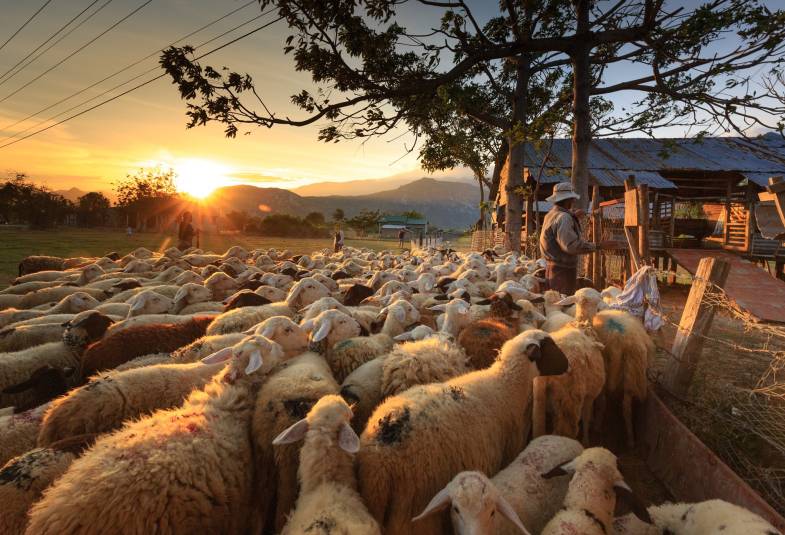24/12/2022
Archbishop Stephen writes in today's The Times. His article follows in full...
There is so much about the presentation of the Christmas story in modern times that seeks to sanitise it. We tend to make it comfortable and cosy. We are entranced by the Victorian image of snow gently falling around a stable. The Holy Family bathed in warm light. The little donkey, oxen et al quietly munching their straw in the background. There are visits from shepherds with their sheep and wise men with their gifts. It is a very familiar story, and that familiarity helps generate the cosiness with which we like to surround the events at the heart of Christmas. And of course, from that familiarity and cosiness comes all the other familiar customs, stories, and traditions with which this time of year is surrounded.
This is a natural thing to do. In the midst of a cold winter, with dark nights and short days, the warmth and light that comes from the nativity story and our Christmas customs is very welcome. The emphasis on celebration, eating, sharing gifts and time spent with friends and family is entirely right and a natural unfolding of the themes of the nativity story. But this year, when life is tough, so very tough for so many people, it is right to look again at this perhaps overly familiar story.
From the very beginning, this is no straightforward tale of the birth of a child. Mary’s pregnancy is announced to her by an Angel. She is just a teenager. Her prospective husband has to be persuaded not to disown her. He has a dream that tells him to be faithful. He stands by her. Right from the start the trust of Mary and Joseph, in God and in each other, is amazing. She, though dumbfounded by the angel’s message, is astonishingly obedient to the vision of what her life must be. He listens to a dream. Then comes the taxation of the population and the journey of the young couple from Nazareth to Bethlehem. By modern standards, this isn’t a long journey, but on foot or on a donkey, as we imagine, it would have been demanding and arduous, particularly for the heavily pregnant Mary. But no maternity unit awaits them. The only shelter is a cave or stable at the back of a pub. It’s not sanitary – let’s face it, most of us wouldn’t by choice eat or sleep in a stable, never mind give birth.
And if that isn’t enough, the people that come to greet the new-born child are shepherds, generally treated as being at the bottom of the social hierarchy. They turn up in the middle of the night, followed at some later point by curious foreigners mumbling about stars and offering (aside from the gold) generally impractical gifts. Really! And just as things might be starting to calm down; Herod’s genocide is visited upon the community and this young vulnerable family flee. Like countless people throughout history and in our own day; they become refugees and seek asylum in Egypt – where at least they find some kind of welcome and can settle for a few years. It is a story of incredible faithfulness, fearfulness, vulnerability, dislocation, and courage.
And this is how God abides in our world. God chooses for his Son, Jesus Christ, to be born into this poverty, exile, and persecution. God comes into the very midst of the world’s confusion and chaos. And in this, shepherds find joy, kings a new King, and Mary and Joseph find peace and purpose.
So, it can be with us. In such challenging times, when today many of us find ourselves in poverty; when there are difficult choices between heating and eating; when the food bank donor has become the food bank user; we perhaps see there is much more to identify with in the story of the nativity than often we think.
There is a strong thread running through Christian thought that speaks of God making himself poor, sharing our life completely, sharing all life’s joys and sorrows, then offering from the midst of such a complete indwelling of God’s life with our life, the consolation of the hope we find in Jesus who is himself Good News, the good news that life can be different, that directions can be changed. The poverty of our nature is transformed by the riches of his grace.
But how is it so transformed? It’s transformed by our choosing to embrace a different way of living; one that reaches out to our neighbour in need; by sharing what we have; by finding hope in a story that promises that things can be different.
The Christmas story challenges to change the world. To challenge the order which sees the rich simply get richer, whilst the poor are left to freeze; to challenge the order which refuses to pay a decent living wage for a decent day’s work all in the name of profit or efficiency; to challenge the order that suggests refugees and asylum seekers can’t possibly be genuine. God in Christ challenges us to let the cynicism of worldly concern drop from our eyes and embrace the wonder, mystery and hope that lies at the heart of Christmas. However, you celebrate this year, I pray you will have a happy, holy, and purposeful Christmas.
